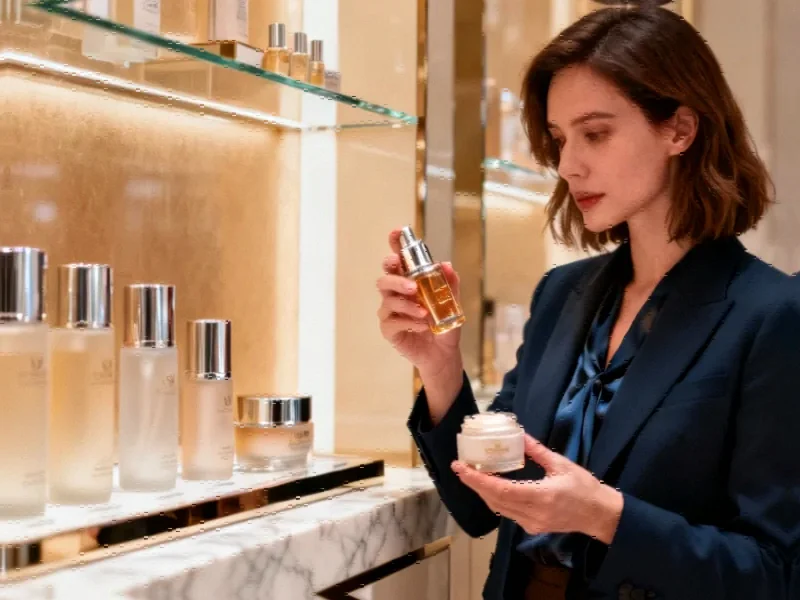Major Luxury Realignment Under New Leadership
In a transformative strategic shift, French luxury conglomerate Kering has announced the sale of its beauty division to cosmetics giant L’Oreal for 4 billion euros ($4.7 billion). The landmark deal represents one of the most significant portfolio adjustments in recent luxury industry history and signals new CEO Luca de Meo’s determined approach to addressing the group’s financial challenges while refocusing on core fashion operations.
The transaction, confirmed this past Sunday, comes less than two months after de Meo assumed leadership of the Gucci parent company. This rapid strategic move demonstrates his commitment to unwinding previous expansion strategies implemented under former CEO Francois-Henri Pinault, whose family maintains control of the luxury group. The sale represents a dramatic reversal of Kering’s previous efforts to build an in-house beauty capability.
Transaction Details and Brand Portfolio Impact
Under the comprehensive agreement, L’Oreal will acquire Kering’s prestigious fragrance house Creed outright, while securing exclusive 50-year licensing rights to develop and distribute fragrance and beauty products under Kering’s flagship fashion labels including Gucci, Bottega Veneta, and Balenciaga. This long-term partnership ensures these luxury brands will maintain a presence in the beauty category while allowing Kering to concentrate resources on its primary fashion business.
The timing of the Gucci fragrance transition is particularly noteworthy. Current licensing rights for Gucci fragrances are held by Coty Inc., with analysts projecting that arrangement will expire around 2028. The new half-century licensing agreement with L’Oreal will commence immediately following the conclusion of the existing Coty contract, ensuring a seamless transition for one of the world’s most valuable luxury fragrance portfolios.
Addressing Financial Pressures Head-On
The sale directly addresses growing investor concerns regarding Kering’s financial health. At the end of June, the company reported net debt of 9.5 billion euros, supplemented by an additional 6 billion euros in long-term lease liabilities. This substantial debt burden has weighed on the company’s valuation and limited its strategic flexibility in a competitive luxury market.
This decisive move to divest the beauty unit follows broader market trends where companies are streamlining operations to strengthen financial positions. The 4 billion euro infusion will provide immediate relief to Kering’s balance sheet and create additional capacity for investment in core fashion categories where the company maintains its strongest competitive advantages.
Strategic Implications for the Luxury Sector
Kering’s retreat from the beauty space marks a significant moment in the ongoing evolution of luxury brand management strategies. While many luxury houses have sought to expand into beauty as a complementary revenue stream, this divestiture suggests that Kering’s new leadership believes greater value lies in focusing exclusively on high-fashion categories.
The transaction also represents a major coup for L’Oreal, which strengthens its position in the prestige fragrance segment while adding three of the world’s most desirable luxury brands to its portfolio. This acquisition aligns with L’Oreal’s strategy of dominating the global beauty landscape through both owned brands and licensed partnerships with fashion houses.
This strategic realignment occurs alongside other industry developments where companies are reassessing their core competencies and portfolio compositions. The luxury sector continues to navigate post-pandemic market dynamics, with brands increasingly making bold strategic choices to optimize their market positions.
Broader Industry Context and Future Outlook
Kering’s decisive action reflects a broader pattern of corporate restructuring across multiple sectors. Similar to how some related innovations have transformed retail technology, this transaction demonstrates how established companies are adapting to new market realities through portfolio optimization.
The beauty industry continues to witness significant transformation through various recent technology and strategic shifts. L’Oreal’s acquisition positions the beauty behemoth to capitalize on the growing convergence between luxury fashion and beauty, while Kering’s refined focus could potentially strengthen its competitive position against rivals like LVMH and Richemont.
For additional perspective on this landmark transaction, readers can explore comprehensive coverage of Kering’s strategic divestiture and its implications for the global luxury market.
As de Meo implements his vision for Kering’s future, this transaction establishes a clear precedent for his leadership style: decisive, financially-focused, and unafraid to make bold strategic corrections. The luxury industry will be watching closely to see how this refined strategy translates into performance in the coming quarters, particularly as Kering seeks to strengthen its position in the intensely competitive global fashion landscape.
This article aggregates information from publicly available sources. All trademarks and copyrights belong to their respective owners.
Note: Featured image is for illustrative purposes only and does not represent any specific product, service, or entity mentioned in this article.



